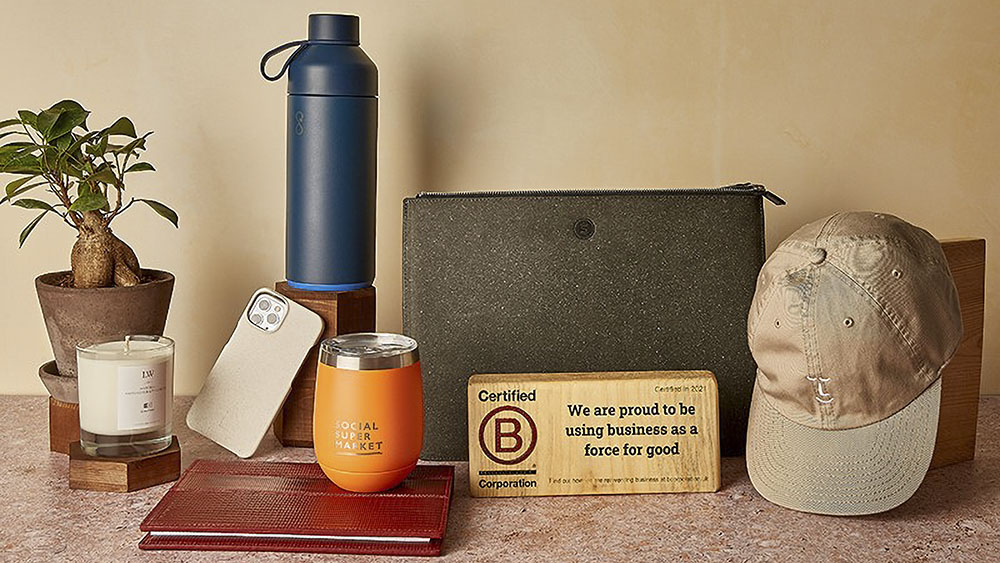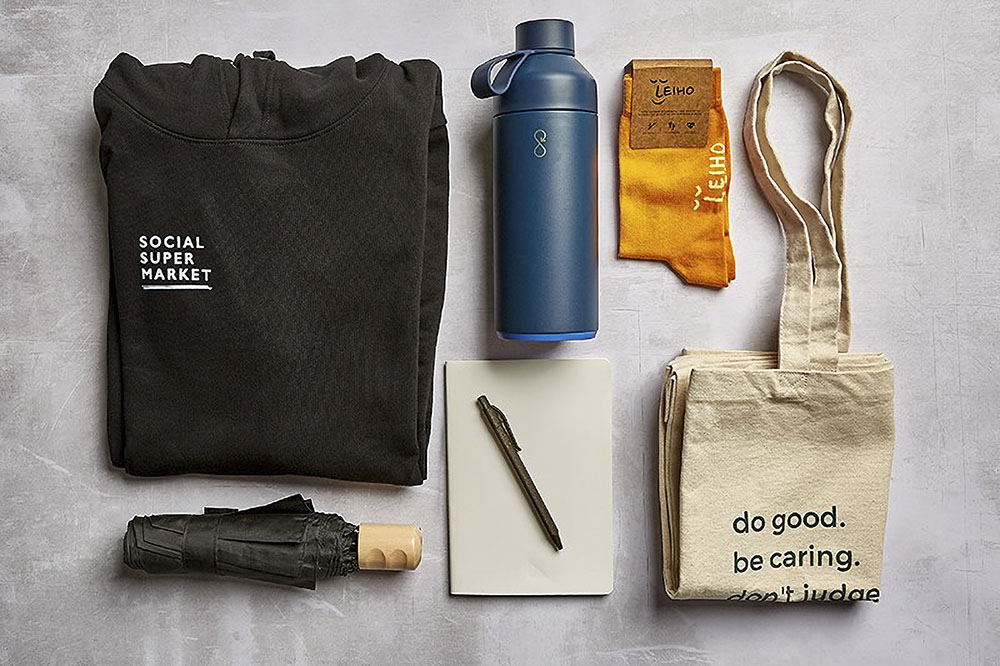THE UK’s largest marketplace for social impact products has announced the launch of a Branded Merchandise offering for corporates.
The B Corp-certified organisation’s business model is already used by clients including Clifford Chance, Montcalm East, and Slalom Consulting. The new offering extends Social Supermarket’s role in connecting corporations with UK-based social enterprises with true impact.

With a steadfast commitment to sustainability and social responsibility, Social Supermarket aims to redefine the £1bn industry — and it says that being UK-based is a significant factor when purchasing at scale post-Brexit.
ESG is becoming a prerequisite for environmentally conscious consumers, who want reusable and recyclable merchandise. To grasp the influence of branded merchandise, 95 percent of UK businesses view corporate gifting as a vital part of their business strategy, and 79 percent of consumers say they are likely to do business with a company that gave them a promotional product.

Insights from the British Promotional Merchandise Association (BPMA) show that when compared to print, web, direct mail or TV, promotional products are nearly six times as likely to make recipients feel appreciated and valued. When it comes to employee sentiment, 59 percent have a more positive opinion of their workplace after being gifted a promotional product.
Branded merchandise doesn’t have to be uninspiring, says Jamie Palmer, co-founder of Social Supermarket. “It can be a tool to boost engagement and sentiment throughout companies while having real-world impact on disadvantaged communities worldwide and the planet.”
UK law firm Mills & Reeve partnered with the marketplace to source plastic-free cups. The choice led to a saving of 1817.61kg of Co2 per annum.
Social Supermarket offers over 5,000 products, from clothes and accessories to office supplies and plants. Elvis & Kresse notebooks are made from decommissioned firehoses, and 50 percent of profits go to The Fire Fighters Charity; pens made from recycled CD cases fund global education projects, and 100 percent biodegradable tote bags from Leiho are made from jute. For every bag sold, 20 meals are donated to children in poverty.





























